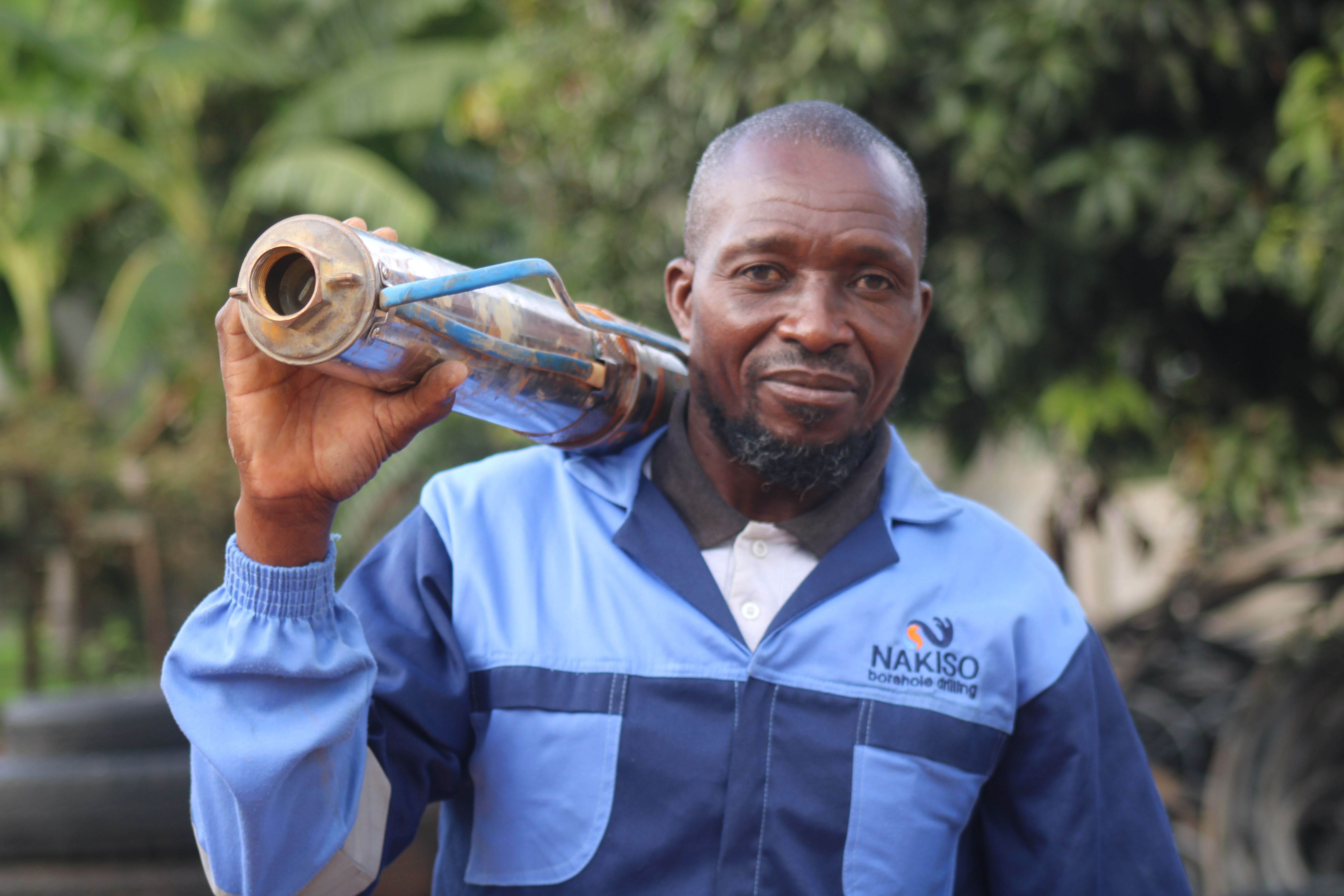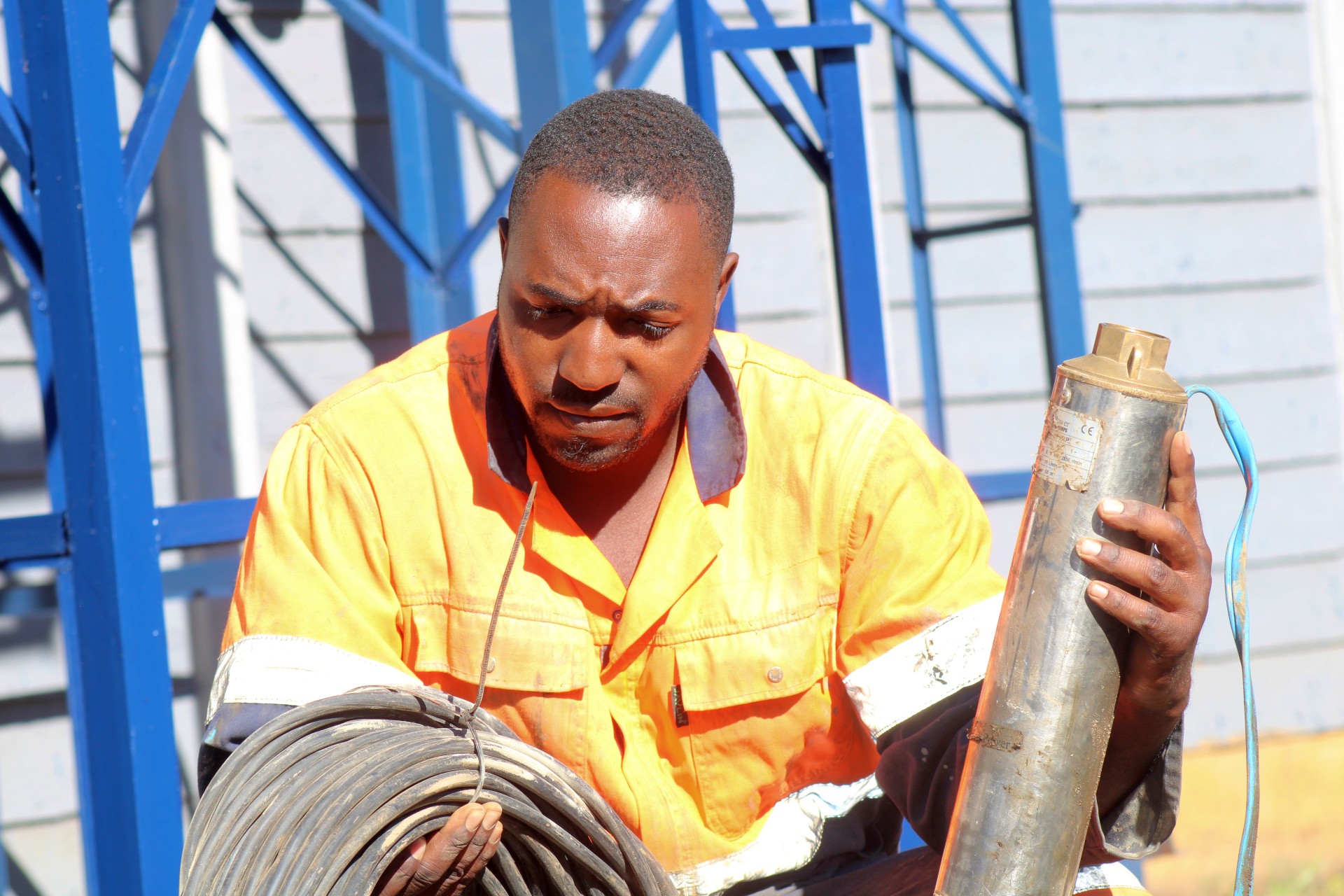Nakiso Borehole Drilling has been piloting solar-powered water supply systems in off-grid areas. Because of these pilot projects, the technology has evolved and the reliability and efficiency of systems have improved significantly.
 |
| Nakiso Borehole Drilling Scales Up Solar Powered Water Supply Systems! |
Even when improved drinking water sources exist, ensuring safe and sustained water services remains a challenge. Water points can regularly break down and services are often unreliable, creating major barriers to access.
Reasons for this can include a lack of local capacity, particularly in terms of repair and maintenance, land degradation and pollution.
 |
| Nakiso Borehole Drilling Scales Up Solar Powered Water Supply Systems! |
The new Sustainable Development Goal (SDG) on the water and sanitation agenda is more ambitious and aims to ensure that everyone has access to a safe and reliable source of drinking water at home by 2030 (SDG 6.1).
Countries are expected to progressively move up the drinking water ladder, ensuring communities have access to safer and more reliable services. In most areas, groundwater remains the most viable and safe source of water and will continue to play a key role in meeting the SDG for water supply.
 |
| Nakiso Borehole Drilling Scales Up Solar Powered Water Supply Systems! |
Solar-powered water systems have the potential to meet all of these criteria, providing higher quality services to multiple homes and even villages through the use of small piped water schemes.
Did You Know That: The assessment found that when correctly sited and dimensioned, solar-powered water systems are a sustainable and effective method of providing safe water to communities.
About Nakiso Borehole Drilling
At Nakiso Borehole Drilling, we are your comprehensive partner for unlocking reliable water on your property. Our highly skilled team tackles all drilling projects, from standard boreholes to specialized Blast Hole and RC Drilling.
We handle everything in-house for a seamless experience, encompassing expert borehole siting, efficient drilling, and pump installation – solar, electric, or manual – tailored to your specific needs. With Nakiso, your reliable water source is just a drill away.
We don't just strive to be the best; we maintain the industry's strictest quality standards and are committed to sustainable practices for the future of Zimbabwe's water security.
Fact 1: Know Your Borehole Casings
The Preferred Borehole Casing In Zimbabwe Is Class 9 and 10 (Pressure Classes.)
This is because Class 9 and Class 10 Casings are more collapse resistant. The strength of a Casing is often described as collapse resistance.
Fact 2: Borehole Drilling Depth
The exact depth, of where the water is located, cannot be established by the drilling contractor nor the Water Surveyor (Borehole Siter).
Fact 3: There Is No 100% Guarantee
It is important to note that it is never a 100% guarantee that any hole will yield water, the amount and water quality can also not be guaranteed by the drilling contractor and water surveyor.
Fact 4: Siting Is Important
Making use of a hydrologist or traditional water diviner will increase your chances of having a successful borehole that will yield a sufficient amount of water.
Fact 5: Know The Risks
The risk of the borehole drilling lies with the property owner. The client will still be liable for the drilling costs irrespective of a borehole yielding water or not.
Our Branches and Our Contacts

Churchill Ave Branch
Business Offices (HQ):55 Churchill Avenue,
Alexandra Park,
Harare North,
Zimbabwe.
Call Us Today:
Office Numbers: +263 867 71 88844
Sales: +263 78 860 8009
Operations: +263 78 860 8005
Marketing: +263 78 876 6701
Email: info@nakisoboreholes.co.zw
Website: www.nakisoboreholes.co.zw

Bluff Hill Branch
Business Offices:36 St. Anthans Drive,
Bluff Hill,
Harare,
Zimbabwe.
Call Us Today:
Office Numbers: +263 71 494 0883
Sales: +263 78 860 8009
Operations: +263 78 860 8005
Marketing: +263 78 876 6701
Email: info@nakisoboreholes.co.zw
Website: www.nakisoboreholes.co.zw






